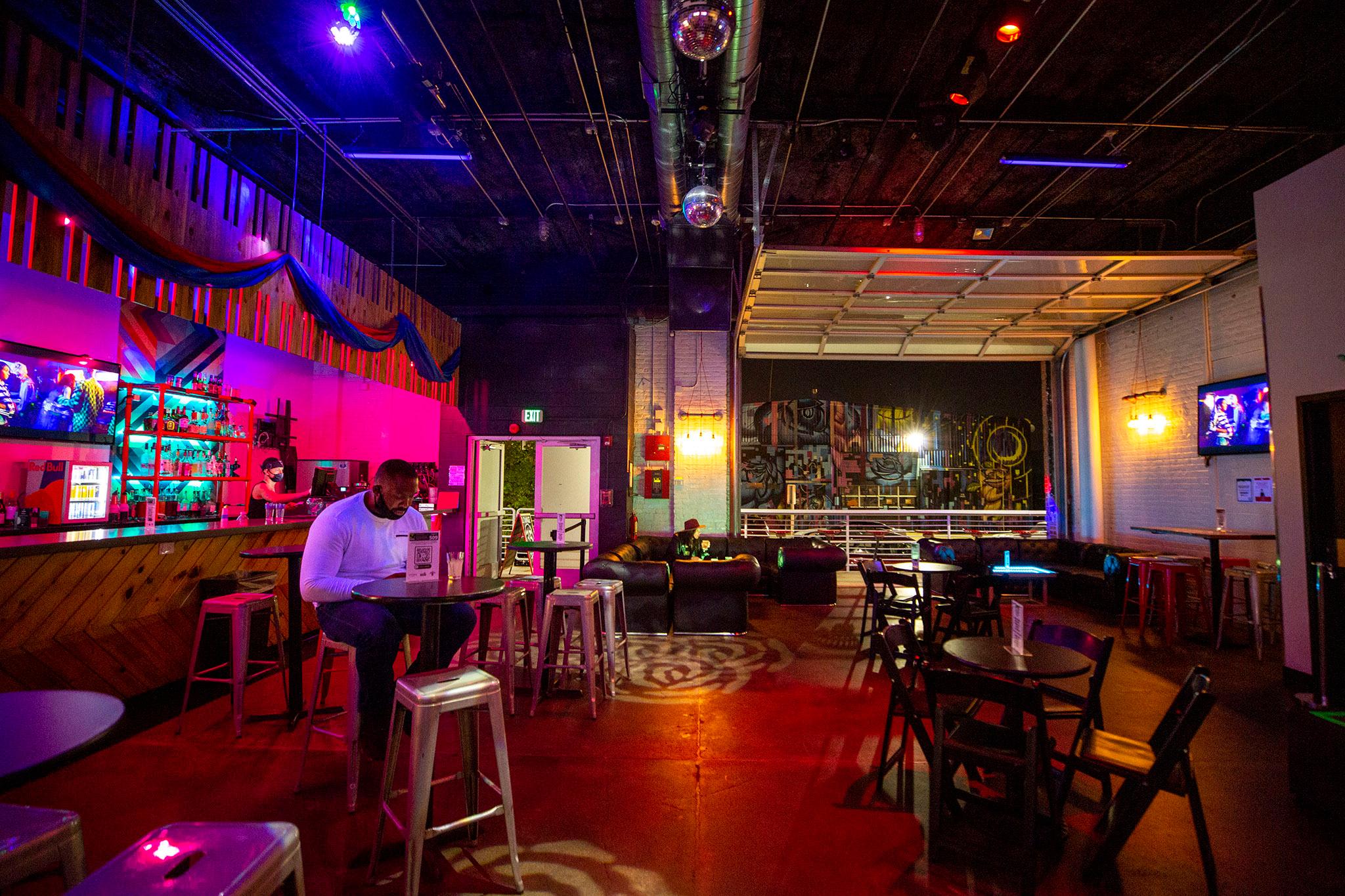Bartenders, cooks, dishwashers and servers have long had special access to cheap cocktails via "Industry Night," a tradition for many people who work Fridays and Saturdays. It's when bar owners offer exclusive drink deals and try to boost sales on slow week nights.
At Tracks Denver in RiNo, Wednesday is the appointed night. We stayed up late recently to ask industry folks how things have been going.
Attendance at the lounge was pretty scant the two Wednesdays when we visited. We probably didn't stay up late enough, since it's not uncommon for industry folks to leave work around midnight. But a bartender told us a lot of people are laying low.
Still, we got to talk to four people whose livelihoods were upended when COVID-19 arrived. All four said federal stimulus checks and state unemployment helped them make it through the pandemic's darkest months.
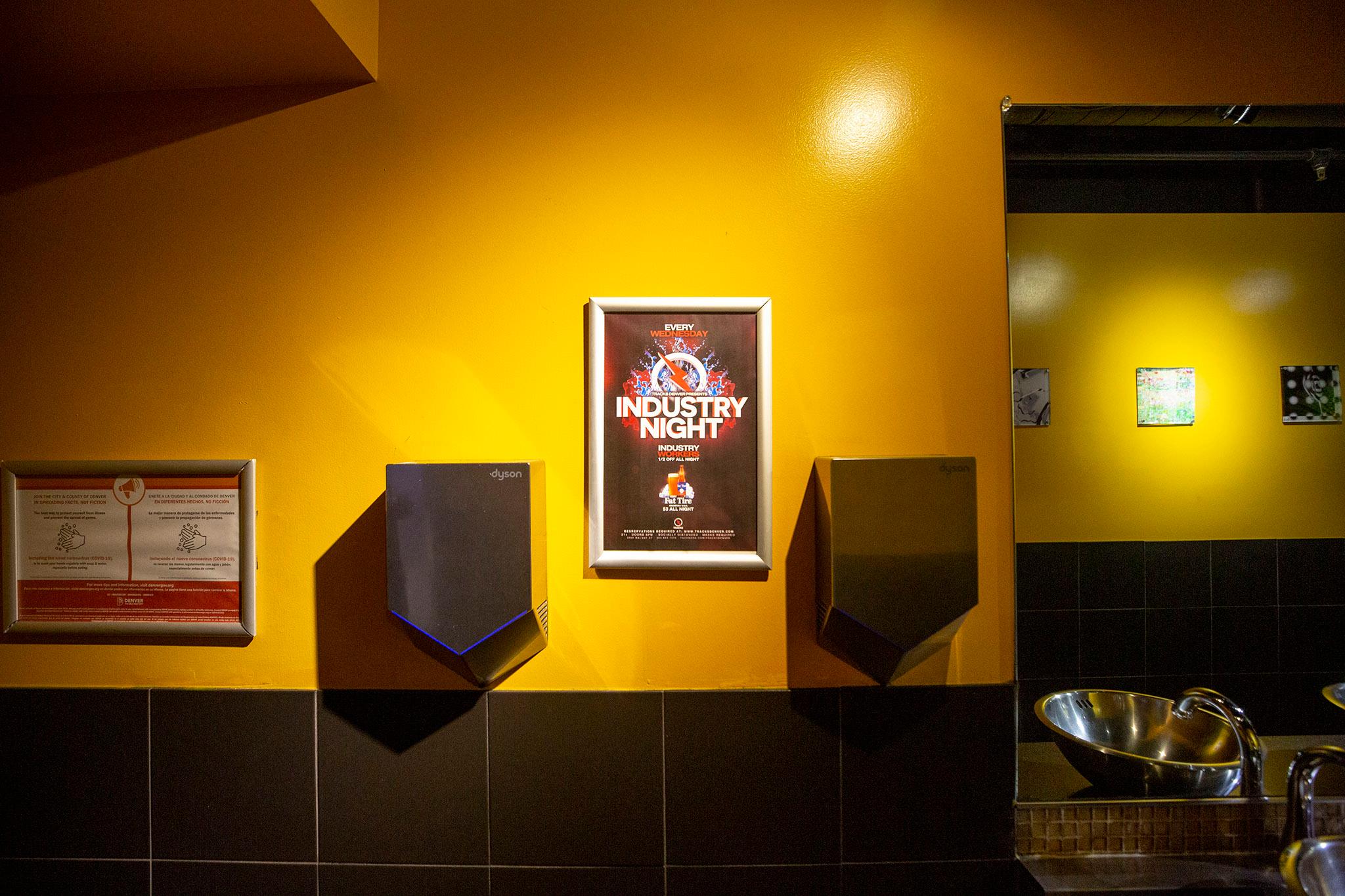
"It felt like my world was ending."
Jessie Hall was working at a restaurant in Larimer Square when things went sideways. He said he stayed employed for a little while, helping to prepare to-go orders in the pandemic's early days. He was laid off when Denver's stay-at-home orders kicked in last March. In a matter of two weeks, he lost his job, his live-in relationship ended in a bad way, and someone stole his moped. Hall said it was one of the darkest periods of his life.
"I was sobbing uncontrollably in various corners of my apartment, not knowing where my rent money would come from, not knowing anything, being 36 hours away from any family, any support," he recollected as house music filled Tracks' small lounge. "Everything in my life turned upside down immediately."
Hall said he did qualify for unemployment, but there wasn't much cash left over after he paid his rent. He had about $400 to live on for the rest of the month.
But he said the restaurant job did more than cover his bills. Hall said he suffers from "severe" ADD and ADHD, and his work schedule gave him a routine and responsibility that helped keep his demons at bay. It's one reason why the layoff impacted him so intensely.
"I now have a therapist because of this," he said. "I tried to kill myself."
In Halls' mind, COVID-19 was the catalyst that sent him to rock bottom. He said he's OK now, though he's still working toward a full recovery. It helps that things in town are beginning to feel a little more "normal." The isolation that took a major toll on his mental health has begun to wane.
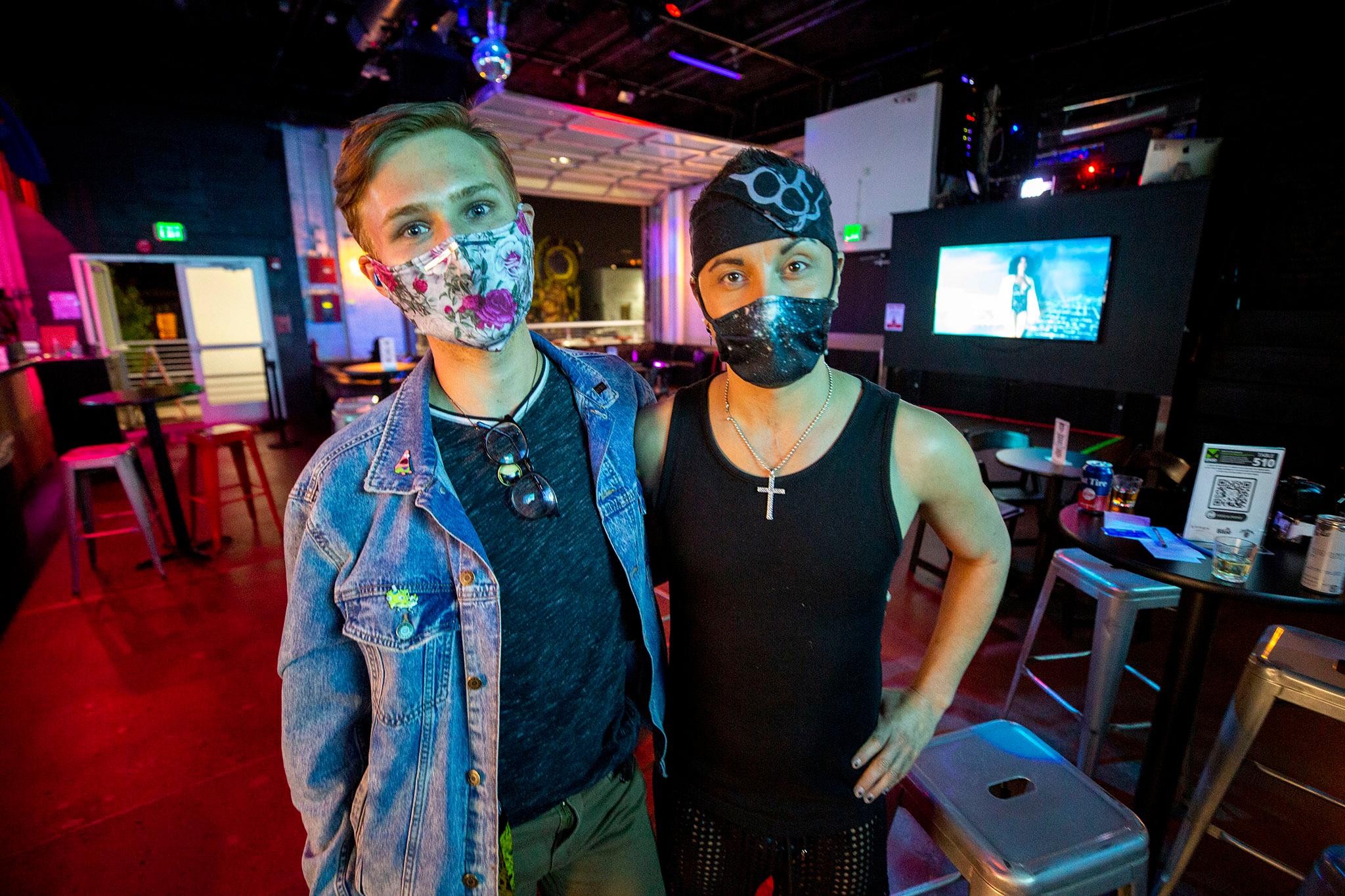
"I learned to take time for myself. I tried to take all the positives. I think everybody went through a lot."
Rufio Jimenez was working the bar when we visited Tracks the first night. Hall, his friend, had come to buy a drink while he was working.
Jimenez runs an entertainment company when he's not pouring drinks. Last year, before the pandemic, he hosted a couple thousand people at the Exdo event space next door to Tracks for his "Fetish Ball." His world revolved around events, dance, music and crowds until all of those things went away.
"Everything just kind of stopped. Money was different. I got unemployment," he said.
He wasn't sure why, but Jimenez said he only got one stimulus check from the federal government. State unemployment, he said, was more helpful. It was just difficult to get.
"I was on hold for three days calling, and I never got a hold of anybody," he remembered. "It was very unorganized."
He had to move out of his apartment and "downsize" into a place he could afford in this new reality. Still, he said he was grateful that he wasn't in a tougher situation. Being single and kid-free meant the stakes were a little lower.
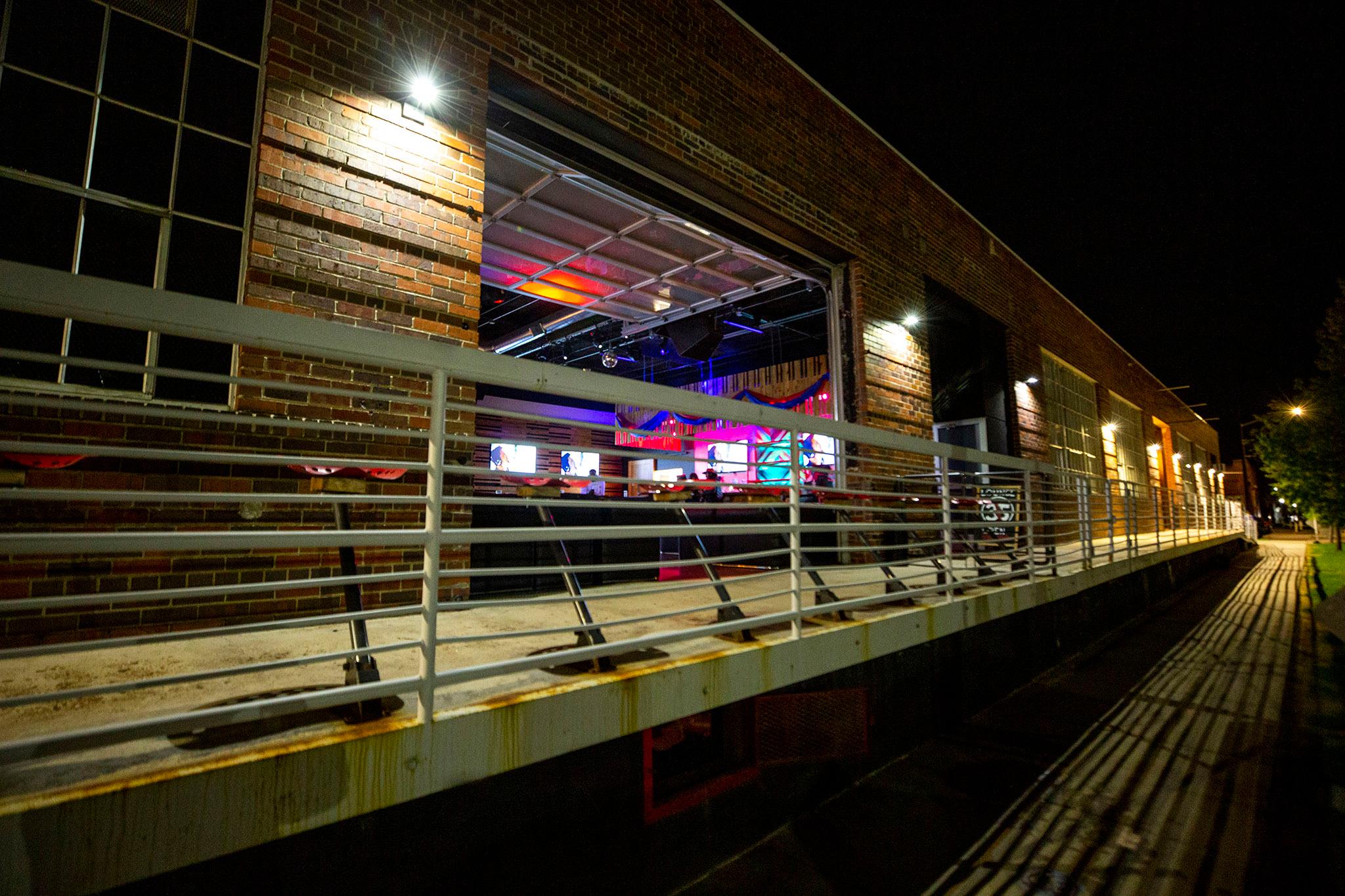
Jimenez said he worked to make sure COVID didn't get the better of him. He's been trying to find silver linings, taking time to get quiet and reflect.
"I was able to take time for myself, which I really hadn't been able to do. You can create something positive and learn something," he said. "I was like: What did I learn from this experience?"
He suspects a lot of people who worked in the industry did the same. While he's still committed to throwing events, he said others who left restaurant jobs may not return.
"I think a lot of people in the industry really had time to take for themselves, really focus on what they want to do next, instead of staying in that same cycle," he said.
"I'm not sitting on my tail doing nothing. I'm still working part time, still going through the motions of doing what I need to do to stay active."
Jaymar Latchison held two jobs at Denver International Airport in the beforetimes. His main gig was with Southwest Airlines, but he also worked part time at a Coors restaurant inside one of the terminals.
It wasn't long after the airport shut down that he lost both jobs. He had to work quickly to make ends meet.
"It was a struggle because there was more piling up than was coming in," he told us as he waited for friends to meet him at Tracks. "The stimulus checks helped a lot."
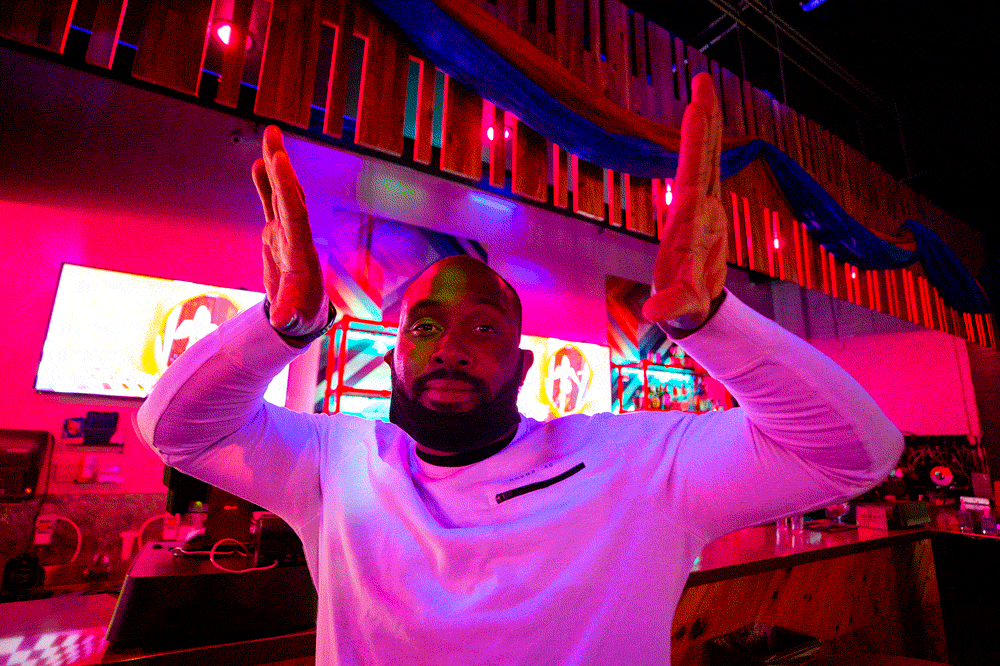
Across the country and in Washington, D.C., there's been an ongoing debate about when special COVID unemployment benefits should be phased out. Some companies and lawmakers have argued the support might persuade people to stay out of the workforce, stay at home and collect government checks. But Latchison said unemployment was hugely beneficial when the floor dropped out beneath him. He never let himself get idle, and the money was a bridge until he found stable employment.
"I'm just doing the best I can," he said. "I'm in a fortunate position."
Latchison is currently employed at an Amazon warehouse where he likes the work and the $15 an hour. He said he's open to working in restaurants again, when the time comes to change things up.
"I turned in my golden handcuffs for something else that probably won't pay me as well."
Scout Farrell began hosting in restaurants when she was 15. She became a bartender when she turned 21, and thrived in the uncertainty of the service economy.
"If it is March 28, I have to pick up three shifts if I want to make my rent," she recalled with some nostalgia as she smoked a cigarette outside the lounge. "There was something really beautiful about that living on the edge."
It was a way to live, she said, until it wasn't.
"You don't expect a pandemic to hit the world," she said.
Last year, she was working at a bar in Boulder when Colorado shut down and management at her restaurant decided to close their doors for good. It was a hard thing for Farrell to wrap her head around, because the restaurant had served generations of customers.
Farrell said she worked the phones and managed to get unemployment benefits pretty quickly from the state. She was floored when federal stimulus checks hit her account. After a decade earning cash in $200 increments every night, she'd never seen such a large deposit all at once. It was incredible and horrifying.
"I have, for the first time in my life, seven grand in my bank account. And that is only because the world decided to shut the f*** down and tell me that I couldn't go back to work," she said. "$1,200 is a lot when you have nothing."
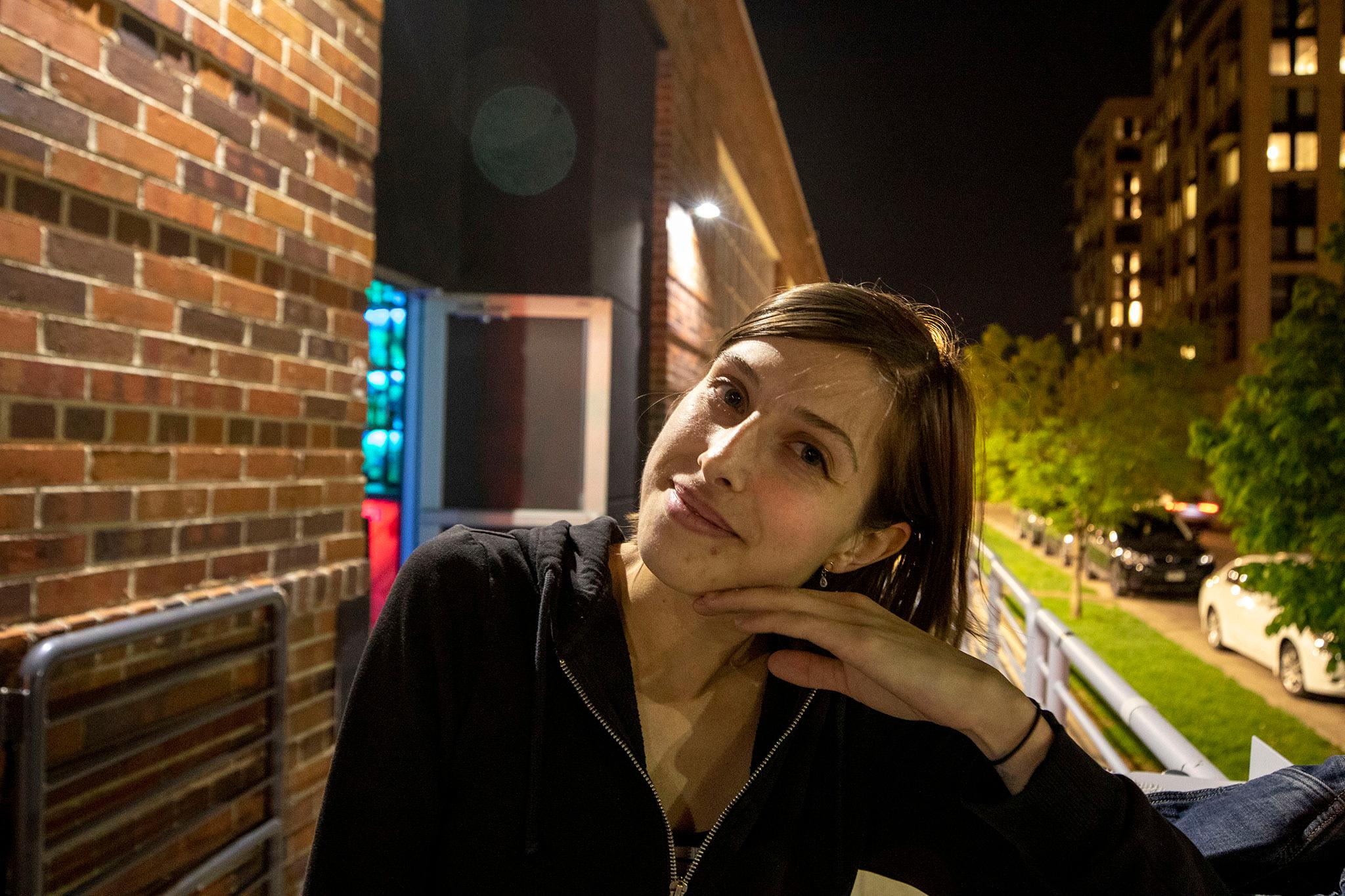
Farrell picked up a new gig in property management. She doesn't love it, but predictable paychecks have made it easier to save and budget. While she misses the chaos that comes with restaurant work, she said COVID-19 demonstrated how close to the edge service workers were really living. It didn't sit well with her, and she may never return to the industry.
"I loved what I did, but seeing that we are so un-taken-care-of in an industry that is so relied on, that was really disheartening," she said.
And it wasn't just the financial lurch she and her colleagues found themselves in last year. She said the shutdowns made a lot of people realize they were taking her services behind the bar for granted. As anyone in the business knows, she said, the work is about a lot more than filling orders. They become friends, therapists and confidants, even if their customers never learn much about who they are outside their jobs.
"People came to you in June being like, 'I didn't realize what kind of a friend I had in you. I saw you two or three times a week, every single week for years, and then one week you were gone,'" she recalled. "Six weeks into that you realize you divulged a lot of info to someone you didn't think you knew. And then you missed them. And truth be told, they might miss you, too."

